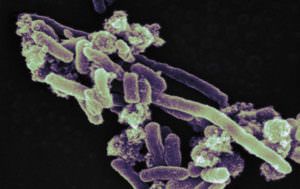Urgent Need for Disposable Water Sensors, Says Public Health Expert
Published on by Rosa Richards, Programme Manager at Sensors for Water Interest Group (SWIG) in Technology
Professor Nigel Silman is urging the sensor technology community to develop sensors suitable for widespread application in developing countries. He will tell delegates to the Sensors for Water Interest Group (SWIG) workshop that the situation is urgent.

Public health expert Professor Nigel Silman says there is an urgent need for readily available low-cost sensors for use in developing countries. In a keynote presentation to delegates at SWIG’s Water & Health Workshop, which takes place in Bristol on 31 January 2018, Prof Silman will say that healthy communities require devices that can be rapidly deployed and provide immediate results.
Nigel Silman is Professor of Infectious Diseases at University of the West of England, he also works at Public Health England. Speaking ahead of the SWIG event he said, “In Europe, water companies have very sophisticated monitoring systems in place, none of which is in use in most developing countries. As a consequence, in some countries, 85% of children under five suffer diarrhoeal diseases in every 12-month period.”
Professor Silman is urging the sensor technology community to develop sensors suitable for widespread application in developing countries. He will tell delegates to the Sensors for Water Interest Group (SWIG) workshop that the situation is urgent.
“Public Health England does a lot of outreach works with very vulnerable populations in developing countries,” he said. “For example, I’m carrying out technical consultancy in Syrian refugee camps in Lebanon.
“What we’re finding is that the portable testing kits we send out, which are really simple to use, are not quick enough. It takes 18-hours to get a result, by which time the water has been consumed and you have or haven’t got a problem.
“Whatever solution is found needs to be cheap enough to be used, otherwise no one will pay for the device implementation. It also needs to be simple; a rapid lateral-flow type assay where you can get a result in five minutes.
“It needs to be the kind of technology that anyone can use, so you don’t need to be specially qualified. That’s the kind of disposable technology we really should be looking at.”
SWIG chairman Richard Luxton said, “I am delighted that Prof Silman is able to join us for this important workshop. Delegates will find out more about waterbourne diseases like cholera and malaria and the application of new and traditional sensing technologies for the early detection of microbial pathogens and toxic chemicals.
“Preventing disease and ensuring the supply of clean water is the fast track to protecting populations from disease and creating healthy nations.”
The one-day Water & Health Workshop takes place at the Exhibition & Conference Centre at the University of the West of England. Presentations from companies and researchers showcasing the latest devices and sensor technologies will follow the keynote address.
To register, please visit the webpage or email rosa.richards@swig.org.uk.
Source: SWIG
Media
Taxonomy
- Drinking Water Security
- Sensor Systems
- Drinking Water Managment
- Drinking Water
- Sensors